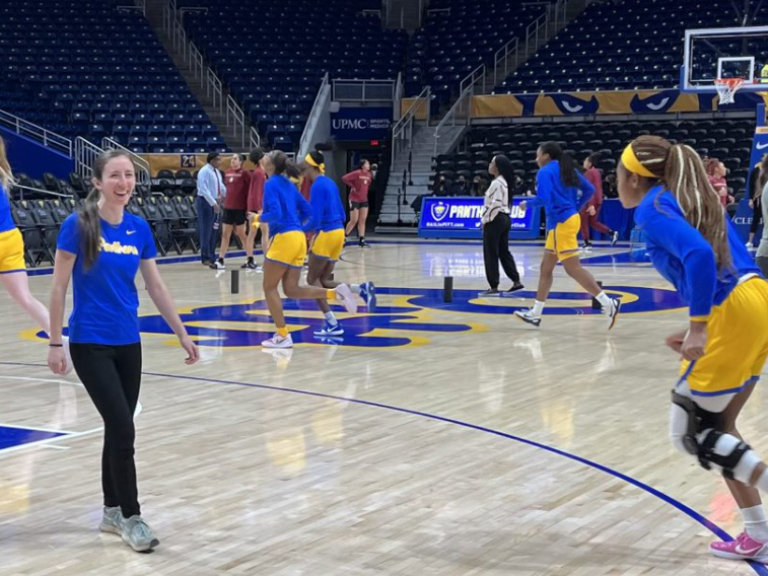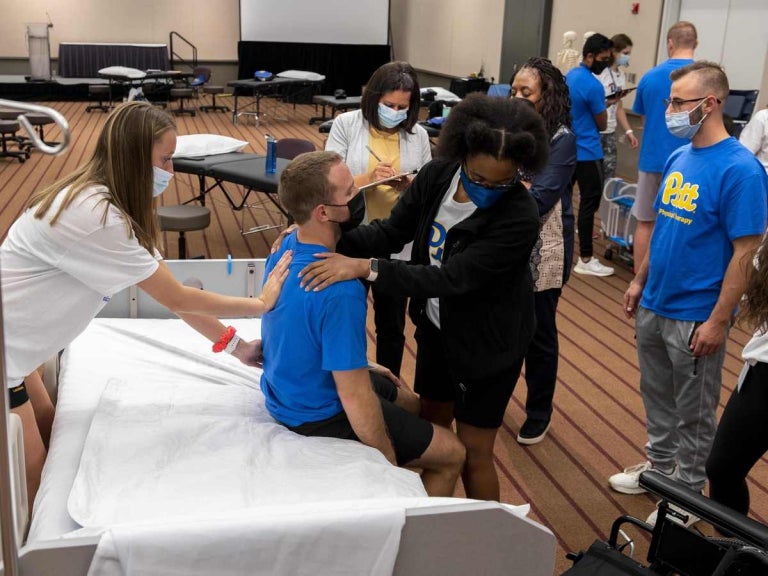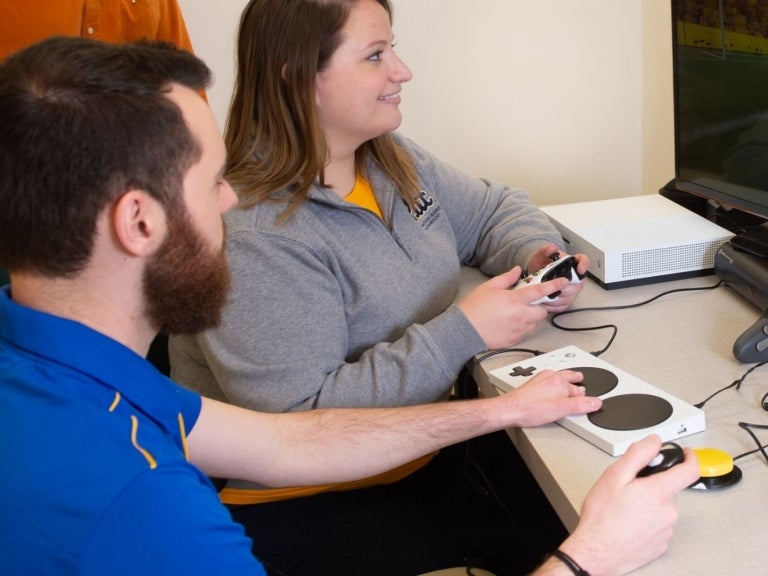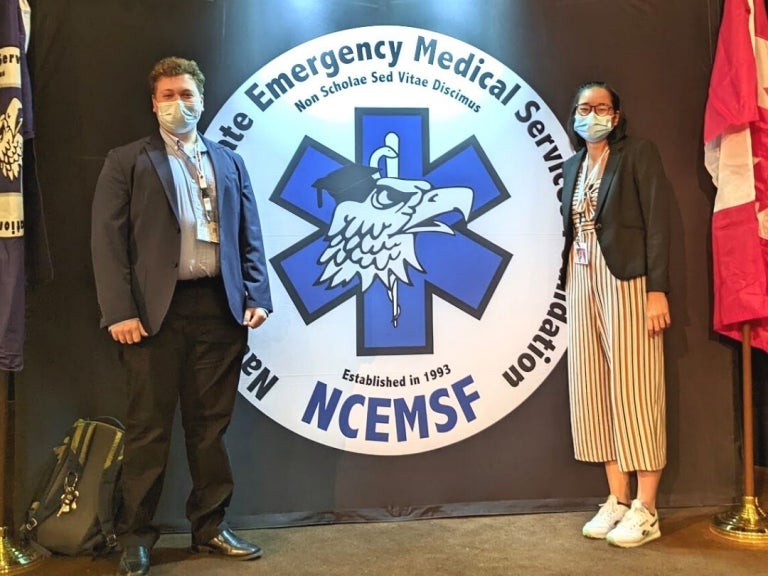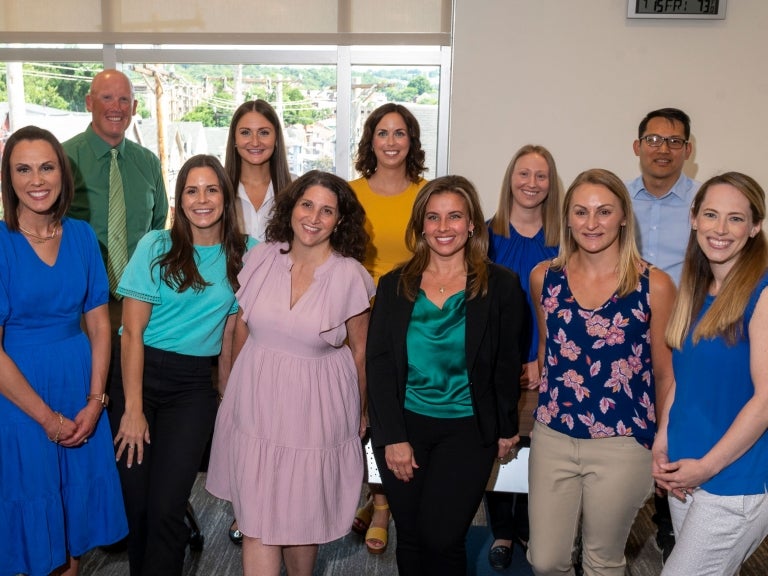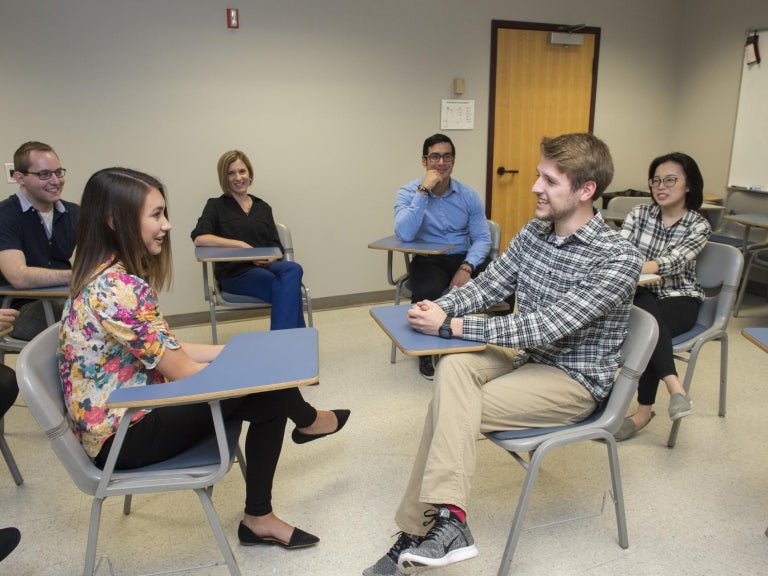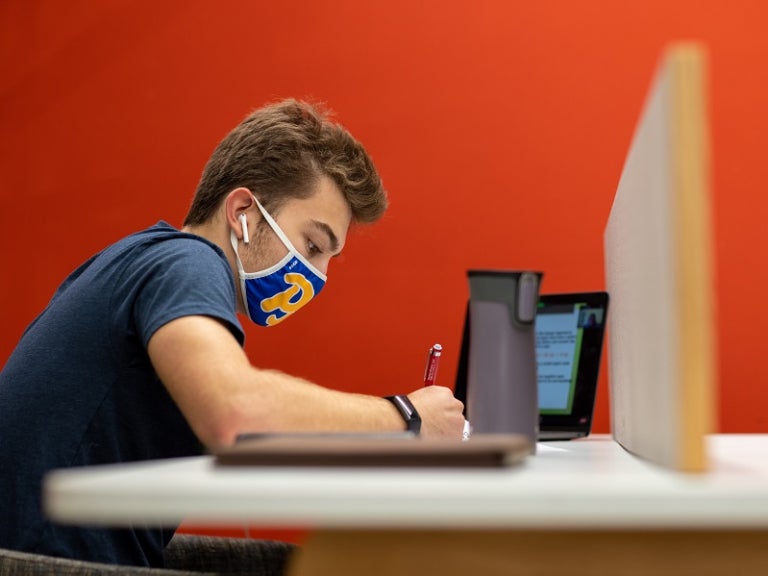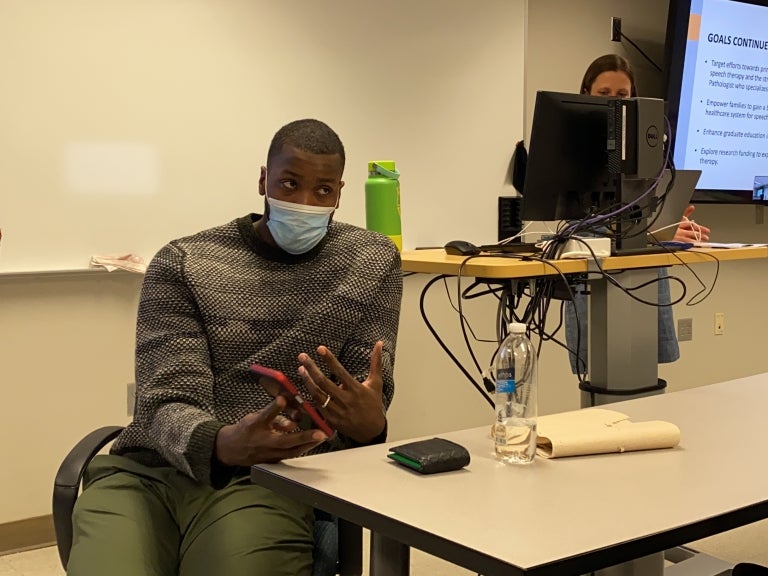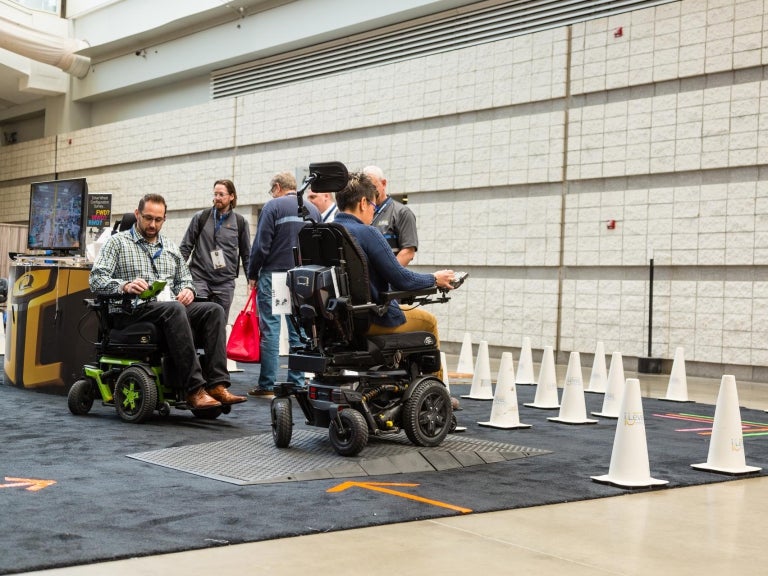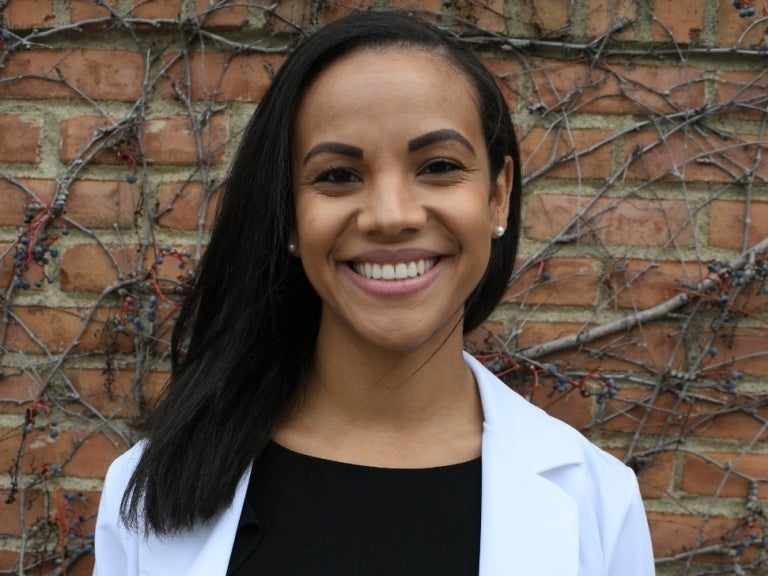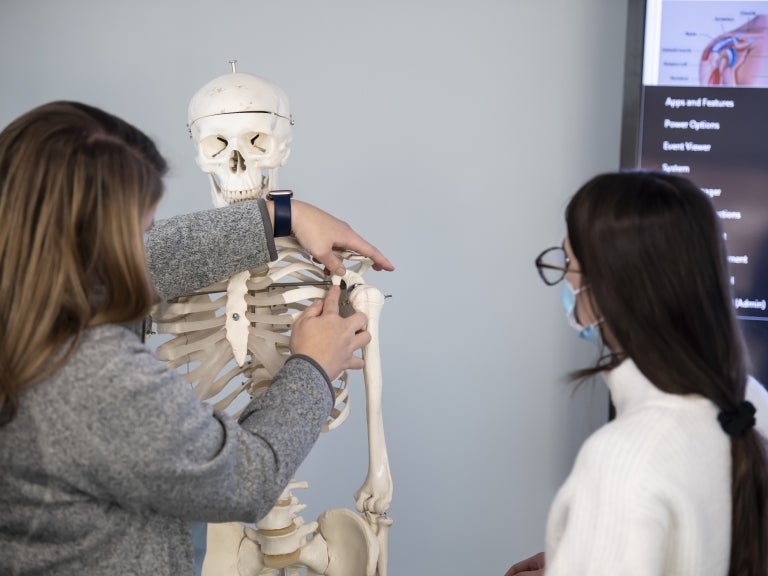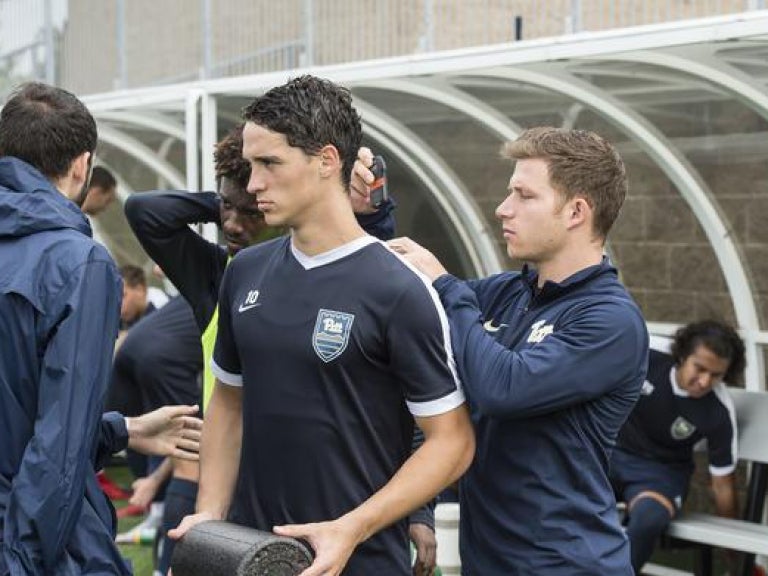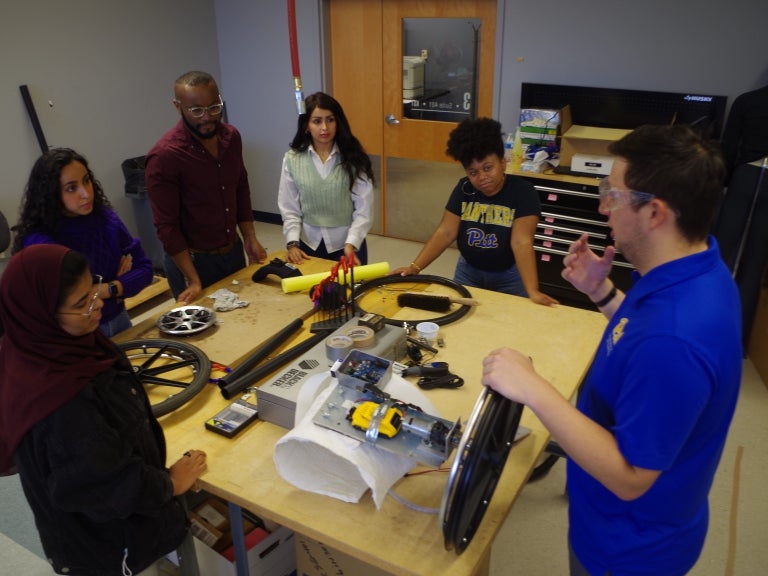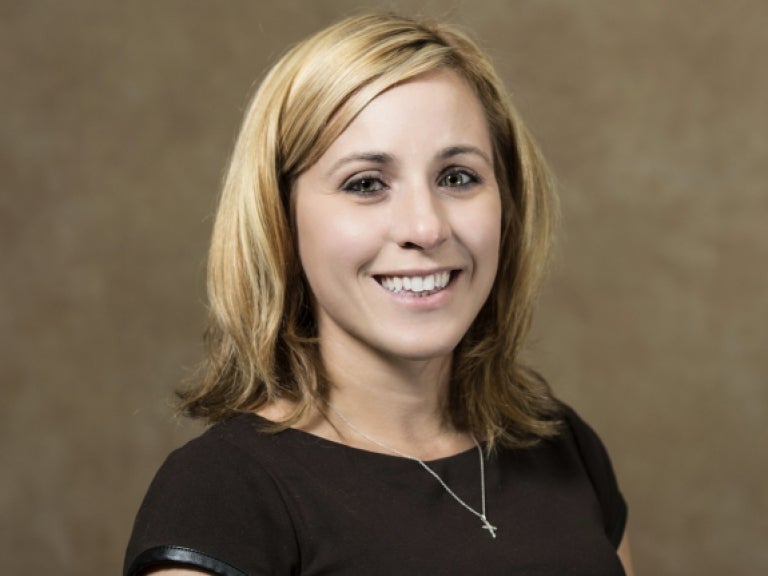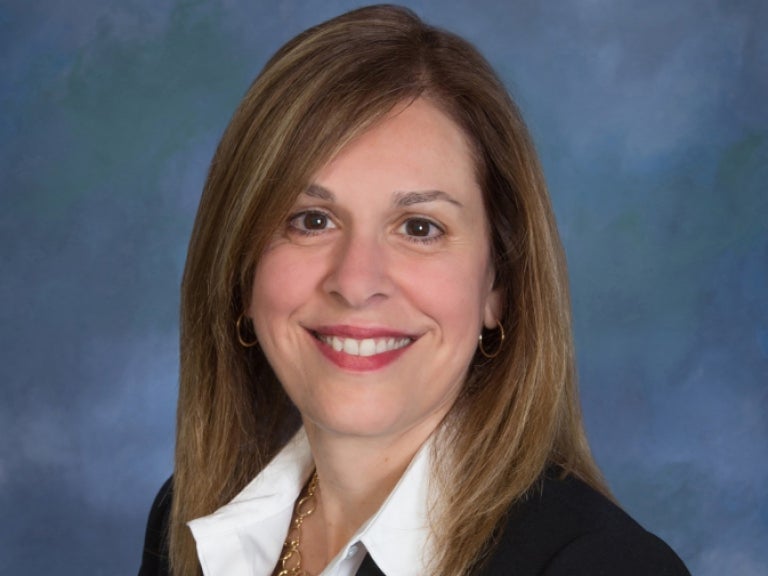With an undergraduate degree in Kinesiology, Caroline Pellegrini was eager to advance her career with a graduate degree that would allow her to bridge athletics and human performance research. When she found the one-year Master of Science in Sports Science program at the University of Pittsburgh School of Health and Rehabilitation Sciences (SHRS), it was the perfect fit.
- About
- Prospective Students
- Overview
- Explore SHRS
- High School Students
- Prospective Undergraduate Students
- Prospective Graduate Students
- Prospective International Students
- Contact Us
- Virtual Tours
- Open House
- SHRS Career Week
- Apply
- Undergraduate Application Process
- Financial Information
- Upper-Level Program General Education Requirements
- Academics
- All Programs
- Athletic Training, Sports Medicine, & Sports Science
- Audiology & Speech-Language Pathology
- Chiropractic
- Counseling
- Emergency Medicine
- Health Informatics
- Nutrition
- Occupational Therapy
- Physical Therapy
- Physician Assistant Studies
- Prosthetics & Orthotics
- Rehabilitation Science
- Rehabilitation Technology
- Continuing Education
- Research
- Inclusion
- Student Life
- Overview
- Orientation
- Ombudsperson
- Academic Toolkit
- Advising Center
- Counseling and Other Services
- Student Health
- Student Handbooks
- Enrollment
- Forms
- Scholarships & Funding
- Center for Interprofessional Studies
- Travel Grants
- Doctoral Defense & Master's Thesis
- Student Advisory Board (SAB)
- Student Groups
- Interdisciplinary Event Series
- SHRS Affinity Groups
- Applying to Graduate
- Commencement
- Forbes Tower Hours
- Safety
- Dean's List
- Blog

